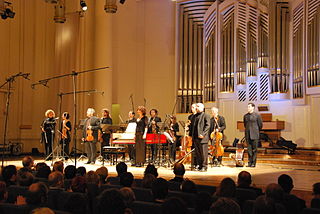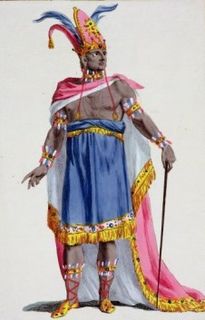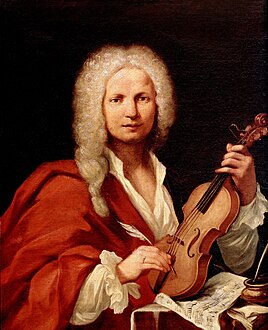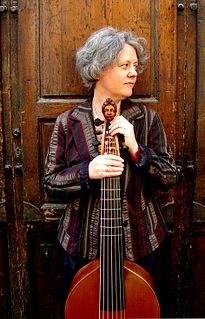Related Research Articles

Federico Maria Sardelli is an Italian conductor, historicist, composer, musicologist, and flautist. He founded the medieval ensemble Modo Antiquo in 1984. In 1987, Modo Antiquo also became a baroque orchestra, debuting with the performance of Jean-Baptiste Lully's Ballet des Saisons in front of an audience of about five thousand.

Europa Galante is an Italian period-instrument Baroque orchestra founded by violinist Fabio Biondi in 1990 and directed by him.

Motezuma, RV 723, is an opera in three acts by Antonio Vivaldi with an Italian libretto by Alvise Giusti. The libretto is very loosely based on the life of the Aztec ruler Montezuma who died in 1520. The first performance was given in the Teatro Sant'Angelo in Venice on 14 November 1733. The music was thought to have been lost, but was discovered in 2002 in the archive of the music library of the Sing-Akademie zu Berlin. Its first fully staged performance in modern times took place in Düsseldorf, Germany, on 21 September 2005.

Orlando, usually known in modern times as Orlando furioso, is an opera in three acts by Antonio Vivaldi to an Italian libretto by Grazio Braccioli, based on Ludovico Ariosto's epic poem Orlando Furioso. The first performance of the opera was at the Teatro San Angelo, Venice, in November 1727. It is to be distinguished from an earlier Vivaldi opera of 1714, Orlando furioso, set to much the same libretto, once thought to be a revival of a 1713 opera by Giovanni Alberto Ristori but now considered by Vivaldian musicologists to be a fully-fledged opera by Vivaldi himself.

L'Olimpiade is an opera libretto in three acts by Metastasio originally written for an operatic setting by Antonio Caldara of 1733. Metastasio’s plot vaguely draws upon the narrative of "The Trial of the Suitors" provided from Book 6 of The Histories of Herodotus, which had previously been the base for Apostolo Zeno's libretto Gli inganni felici (1695). The story, set in Ancient Greece at the time of the Olympic Games, is about amorous rivalry and characters' taking places to gain the loved one. The story ends with the announcement of two marriages.
Sandrine Piau is a French soprano. She is particularly renowned in Baroque music although also excels in Romantic and modernist art songs. She has the versatility to perform works from Vivaldi, Rameau, Handel to Schumann, Debussy, and Poulenc. She has made numerous studio recordings, primarily with Harmonia Mundi, Naïve, and Alpha since 2018.

Fabio Biondi is an Italian violinist and conductor. He is a specialist in Baroque and early music.
Lorenzo Regazzo, is an opera singer. His voice can be categorised as bass, bass-baritone or basso cantante. He is especially well known for interpreting Baroque, Classical, and bel canto repertoire. Among the qualities frequently noted by the critical press are his virtuosic coloratura technique, sumptuous tone, and vivid stage presence.

Ottavio Dantone is an Italian conductor and keyboardist particularly noted for his performances of Baroque music. He has been the Music Director of the Accademia Bizantina in Ravenna since 1996.
Franziska Gottwald is a German mezzo-soprano singer in opera and concert.

Sara Mingardo is an Italian classical contralto who has had an active international career in concerts and operas since the 1980s. Her complete recording of Anna in Hector Berlioz's Les Troyens won a Gramophone Award and both the Grammy Award for Best Opera Recording and the Grammy Award for Best Classical Album in 2002. Some of the other roles she has performed on stage or on disc include Andronico in Tamerlano, Mistress Quickly in Falstaff, Rosina in The Barber of Seville, and the title roles in Carmen, Giulio Cesare, Riccardo Primo, and Rinaldo. She has also recorded several Vivaldi cantatas, Bach cantatas, and such concert works as Mozart's Requiem, Rossini's Stabat Mater, and Vivaldi's Gloria among others.

Maria Grazia Schiavo is an Italian classical soprano who is particularly known for her performances of music from the baroque period. She has performed with major opera houses in Austria, France, Germany, Italy, and Spain, and has appeared in concerts throughout Europe.

Orlando furioso RV 819 is a three-act opera surviving in manuscript in Antonio Vivaldi's personal library, only partly related to his better known Orlando furioso of 1727. It is a recomposition of an Orlando furioso written by Giovanni Alberto Ristori which had been very successfully staged by Vivaldi and his father's impresa in 1713, and whose music survives in a few fragments retained in the score of RV 819. Therefore, Vivaldi's first cataloguer Peter Ryom did not assign the opera a RV number, but catalogued it as RV Anh. 84. The libretto was by Grazio Braccioli.

Atenaide is a 1728 opera by Vivaldi to a revised edition of a 1709 libretto by Apostolo Zeno for Caldara.

Modo Antiquo is an Italian instrumental ensemble dedicated to the performance of Baroque, Renaissance, and Medieval music. It was founded in 1984 by Federico Maria Sardelli. Twice nominated for a Grammy award, the ensemble has an extensive discography, primarily on the Naïve, Brilliant Classics, and Tactus labels and have given the first performances in modern times of several works by Vivaldi. Modo Antiquo's larger ensemble is its Baroque orchestra led by Sardelli. It also has a smaller ensemble devoted to Medieval and Renaissance music led by Bettina Hoffmann.

L'oracolo in Messenia is a 1738 opera by Antonio Vivaldi to a libretto by Apostolo Zeno. The opera was composed for the autumn Venetian carnival season of 1738 after Vivaldi took over the Teatro San Angelo from the impresario who had managed it the year before.
Gloria Banditelli is an Italian mezzo-soprano. She debuted in La Cenerentola in Spoleto in 1979. She is well known both for late-classical early-bel canto era roles of Rossini, Cimarosa and Paisiello, and also baroque opera, such as Monteverdi and Cavalli.
L'Olimpiade is a 1748 opera by Baldassare Galuppi.

Bettina Hoffmann is a German viola da gambist and cellist, musicologist, and music pedagogue. A specialist in Renaissance, and Medieval music, she is the leader of the Renaissance and Medieval ensemble of Modo Antiquo. She has an extensive discography, primarily on the Brilliant Classics and Tactus labels and participated in two Grammy-nominated recordings.
References
- ↑ "Artist Biography". Les Concerts Parisiens (in French).
- ↑ The gramophone - Volume 86 Page 89 2008 "The best known aria is "Non lo diro col labbro" (famous in Somervell's arrangement "Silent Worship"), here sung sweetly by Romina Basso."
- ↑ Le Figaro Rinaldo Alessandrini et son Concerto Italiano "C'est cette version que le chef italien remet sur le métier, aux côtés du moins connu Credo RV 591 mais en bonne compagnie, puisque accompagnée de la mezzo souvent des plus inspirées Romina Basso."